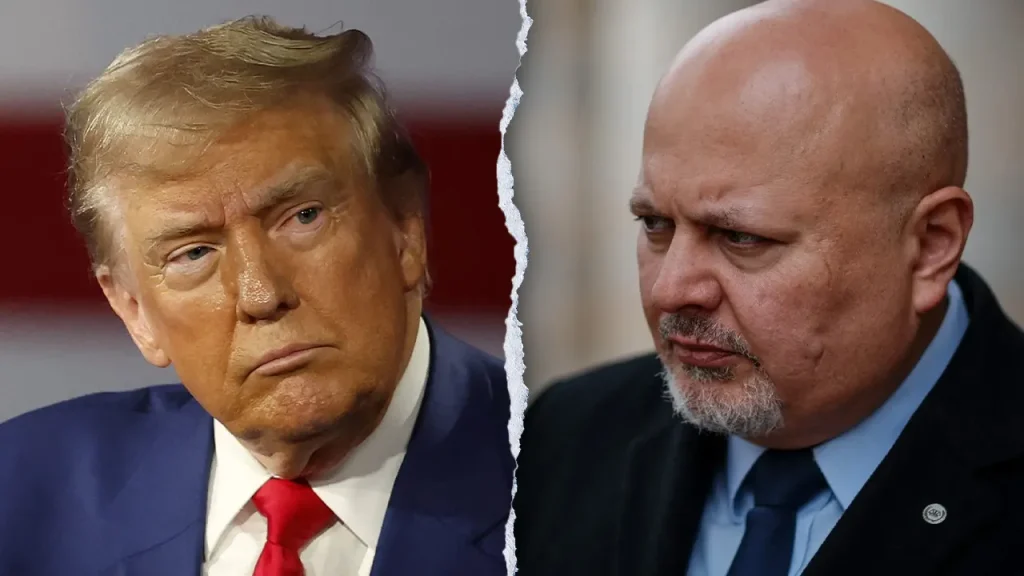The International Criminal Court (ICC) has found itself embroiled in controversy following Prosecutor Karim Khan’s application for arrest warrants against senior Taliban figures, a move that has been interpreted by some as a strategic maneuver to influence impending US legislation. Khan’s request for warrants targeting Taliban leader Haibatullah Akhundzada and chief justice Abdul Hakim Haqqani for crimes against humanity comes as the US Senate prepares to vote on the Illegitimate Court Counteraction Act (ICCA). This bill, already passed by the House, aims to sanction the ICC for its pursuit of arrest warrants against Israeli Prime Minister Benjamin Netanyahu and former Defense Minister Yoav Gallant. Critics argue that Khan’s timing is suspect, suggesting he is attempting to deflect US scrutiny and safeguard the ICC from potential sanctions. This perception is fueled by the ICC’s ongoing investigations into Americans and Israelis, actions that have already strained relations with the US.
The ICCA, if enacted, would impose sanctions on individuals involved in arresting, detaining, prosecuting, or investigating US citizens or allies, including Israel. It also seeks to reclaim funds allocated to the ICC and halt future contributions. This proposed legislation underscores the longstanding tension between the US and the ICC, with the US not being a party to the Rome Statute that established the court. The timing of the Taliban arrest warrant applications has further complicated the relationship, placing the US in a difficult position. Critics argue that opposing the ICC after these warrants appears hypocritical, given the US’s condemnation of the Taliban’s human rights abuses. This perceived double standard adds another layer of complexity to the already strained relationship.
The application for arrest warrants against Taliban leaders has also prompted discussions about the ICC’s priorities and potential biases. Some observers, like Israel’s ambassador to the UN, Danny Danon, have accused the ICC and Prosecutor Khan of an “obsessive focus” on Israel, while seemingly downplaying or overlooking the atrocities committed by groups like the Taliban and Hamas. This perceived disparity has raised questions about the ICC’s impartiality and its criteria for pursuing cases. The timing of the Taliban warrants, coming so close to the US Senate vote on the ICCA, strengthens the argument that the ICC’s actions are politically motivated.
The ICC, in response to these criticisms, maintains that the timing of the Taliban warrants is unrelated to the US legislative process and that its investigations follow established protocols. The court emphasizes the significance of the Afghanistan investigation, citing its resumption after a period of deferral due to an admissibility challenge by the former Afghan government. They further highlight the complexity of such investigations, which require extensive time and effort to gather evidence and build a strong case. The ICC asserts that it applies the same rigorous standards to all situations, including those involving Afghanistan, Ukraine, Myanmar/Bangladesh, the State of Palestine, Libya, and Mali.
The international community has reacted to these developments with mixed responses. The European Union, while respecting the ICC’s independence, has emphasized its support for accountability mechanisms, specifically highlighting the systematic violations against women and girls in Afghanistan. The UN, however, has remained largely silent on the matter, declining to comment on the perceived discrepancy between the pursuit of warrants for Taliban leaders and Israeli officials. This silence further fuels the debate surrounding the ICC’s impartiality and the political undercurrents influencing its actions.
Within the US, the ICC’s actions have solidified support for the ICCA, with some senators publicly stating their intention to vote for the bill. Supporters of the legislation view the ICC’s pursuit of Israeli leaders as a blatant overreach and a threat to US sovereignty. They argue that sanctions are necessary to protect US citizens and allies from what they see as politically motivated prosecutions. Concerns remain, however, that even with Congressional sanctions, the ICC’s operations may not be significantly impacted, necessitating further action from the executive branch to effectively curb the court’s perceived overreach. The debate over the ICC’s actions and the appropriate US response underscores the complex interplay between international law, national sovereignty, and political considerations.










